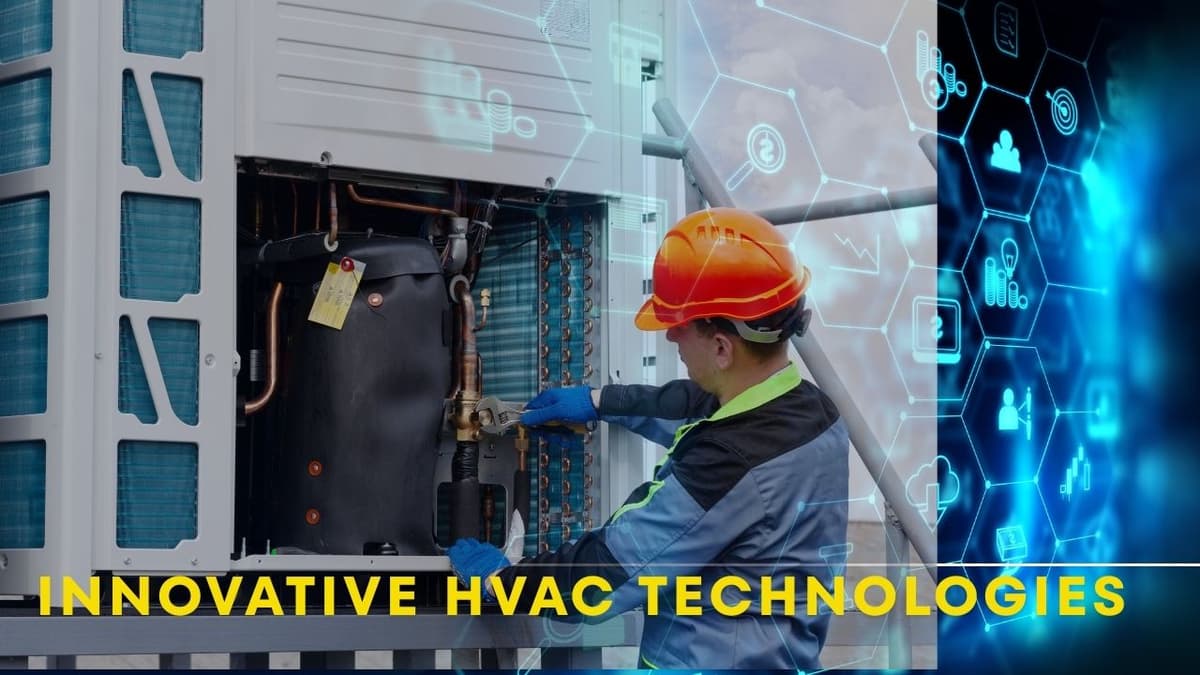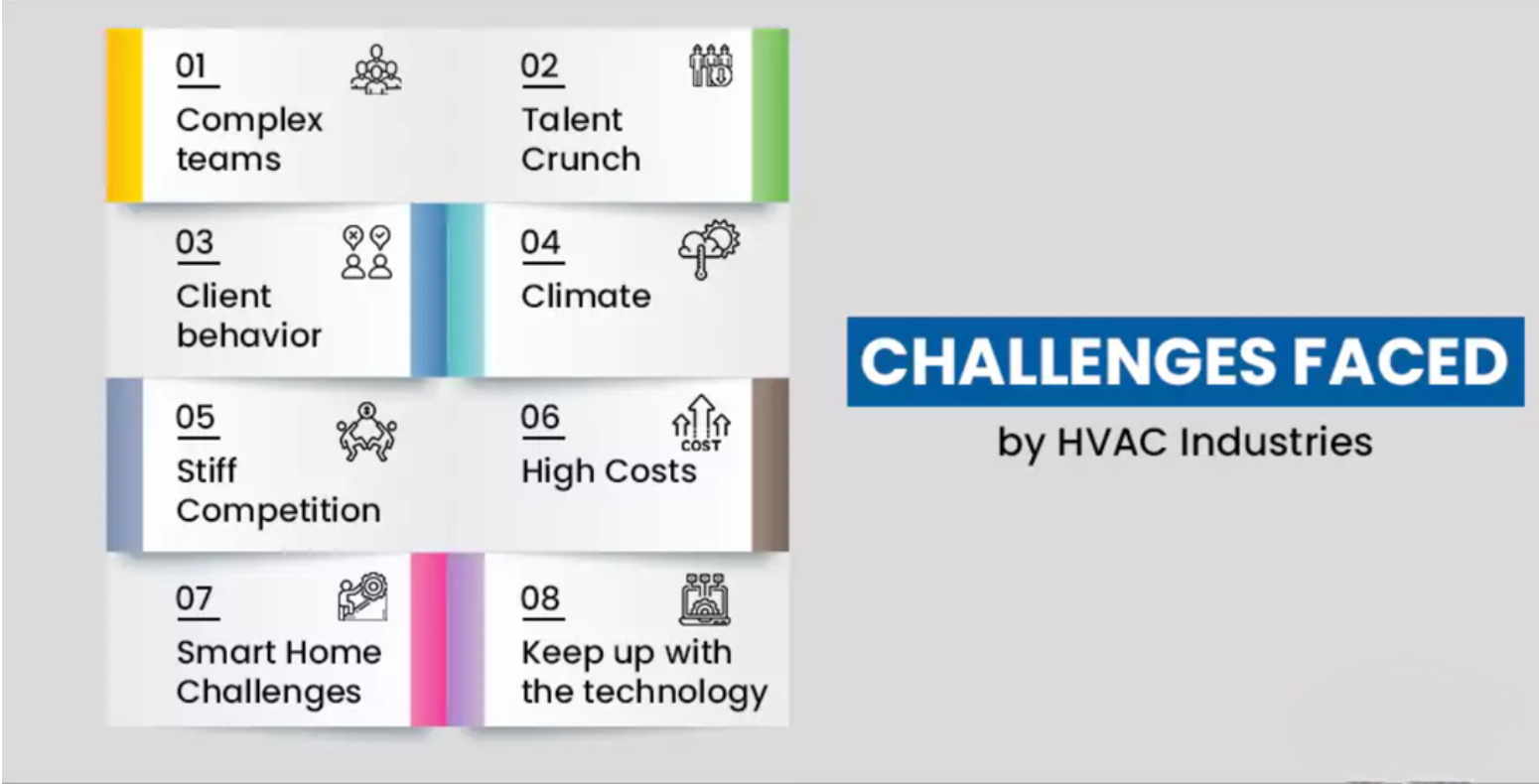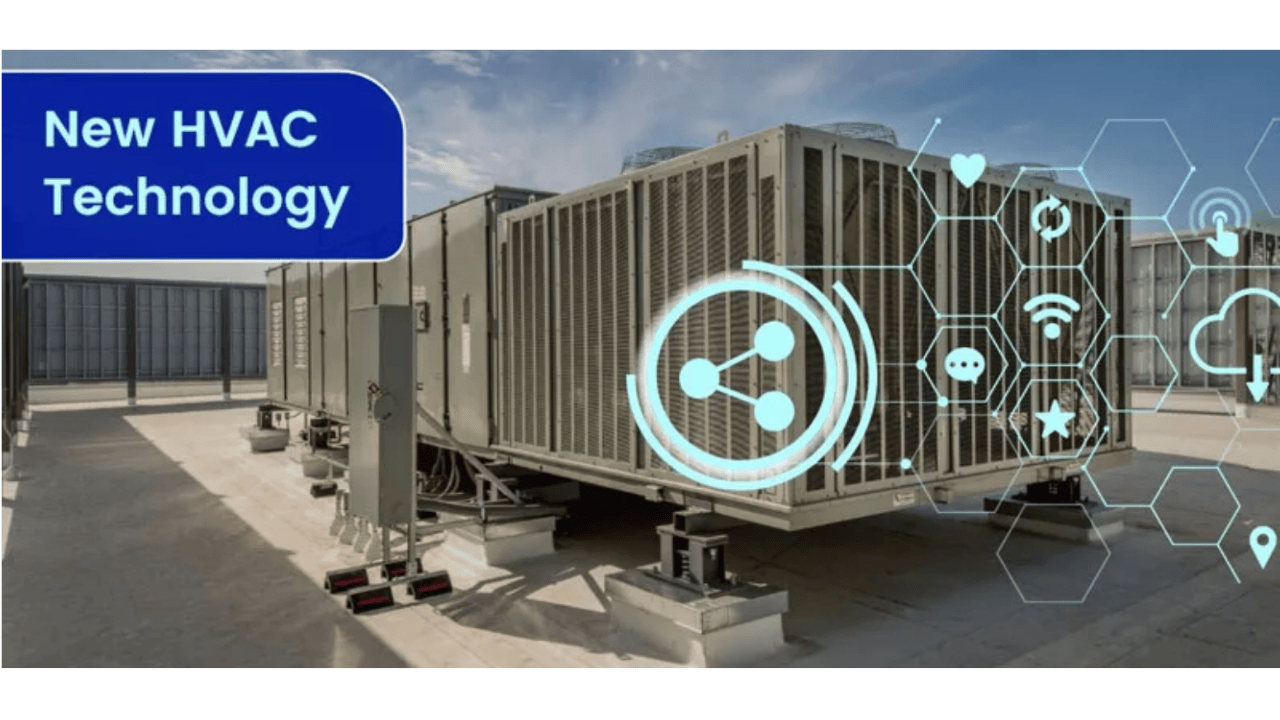AI and HVAC: Driving Efficiencies and Innovation
This article highlights the future of HVAC engineering, covering smart technologies, energy efficiency, key trends, and real-world applications shaping sustainable and efficient solutions for modern buildings.
by Amilia Grant
|
Heating, Ventilation, and Air Conditioning (HVAC) systems are essential in modern buildings. They ensure comfort, air quality, and energy efficiency in homes, offices, and factories. As buildings get more complex and energy-conscious, the need for efficient and smart HVAC solutions is growing. With the rise of new technologies, HVAC engineering is entering an exciting new phase.
In this article, we’ll look at the future of HVAC engineering. We’ll focus on advanced software, smart systems, and trends that will shape the industry in the coming years.
What is HVAC Engineering?
HVAC engineering is a part of mechanical engineering that deals with the design, installation, and maintenance of heating, ventilation, and air conditioning systems in buildings. The main goals of HVAC engineering are:
Thermal Comfort: Keeping indoor temperatures comfortable.
Indoor Air Quality (IAQ): Ensuring good air quality by controlling pollutants and humidity levels.
Energy Efficiency: Reducing energy use while maintaining system performance and comfort.
Working Together in HVAC Engineering
HVAC engineers collaborate closely with architects, builders, and electrical engineers. They help design HVAC systems that work well with the overall building plan. They also make sure the systems meet local safety codes and energy standards, ensuring that buildings are comfortable, safe, and energy-efficient.
A Short History of HVAC Systems
The HVAC industry has changed a lot over the years. Early systems were simple, but modern HVAC systems are much more efficient and advanced. Here’s a quick timeline of HVAC development:
1902: Willis Carrier invented the first modern air conditioning system, changing how we control indoor climates.
1950s: Central heating and cooling systems became common in homes, improving indoor comfort.
1970s: The energy crisis led to the creation of more energy-efficient HVAC systems, like heat pumps and better control systems.
2020s: Smart systems and the Internet of Things (IoT) are revolutionizing HVAC engineering with real-time monitoring and predictive maintenance.
Today, HVAC engineering is about creating smarter, more efficient systems that reduce energy use and improve comfort.
The Role of Software in HVAC Engineering
As HVAC systems become more complex, engineers need software tools to design and manage them effectively. These tools help engineers plan systems, check energy use, and monitor system performance. They also improve accuracy and reduce errors.
Key software functions include:
Design and Modeling: Tools like Autodesk AutoCAD help engineers create HVAC system layouts and test system performance before building.
Energy Efficiency Analysis: Software like Trane Trace and Carrier HAP lets engineers calculate energy use and find ways to save energy.
Load Calculations: These tools help determine the right size for heating and cooling systems, ensuring they work efficiently.
Regulatory Compliance: HVAC design software ensures that systems meet local energy standards and building codes.
Maintenance and Monitoring: Software like ServiceTitan helps track HVAC system performance and identify issues before they cause problems.
These software tools make HVAC systems smarter, more efficient, and easier to manage.
Best HVAC Software for Small and Growing Businesses
Finding the right software is important, especially for small businesses. Many software options are affordable and offer features that improve service and efficiency. Here are some of the best HVAC software tools for small businesses:

Jobber: Streamlines scheduling, invoicing, and customer communication. It integrates with QuickBooks for easy accounting.
Housecall Pro: Easy-to-use software for scheduling, invoicing, and payments.
FieldEdge: Offers features like job scheduling, real-time dispatching, and customer management.

ServiceTitan: An all-in-one platform that helps HVAC businesses manage scheduling, job tracking, and invoicing.
Autodesk AutoCAD: A tool for creating detailed HVAC system designs, including 2D and 3D models.
HVAC Design Software: Helps with system design and performance analysis using 3D graphics.
These tools help small businesses improve efficiency, reduce costs, and provide better service.
How Smart HVAC Systems Are Changing the Industry
The integration of smart technology is one of the biggest trends in HVAC. Smart HVAC systems use IoT devices, cloud computing, and advanced data analysis to monitor systems in real time, predict maintenance needs, and improve energy efficiency.
Key features of smart HVAC systems include:
Granular Control: Smart thermostats and sensors allow precise control of temperature and humidity.
Energy Efficiency: Smart systems adjust heating and cooling based on real-time data, reducing energy waste.
Predictive Maintenance: These systems can predict when maintenance is needed, reducing downtime and repair costs.
System Integration: Smart HVAC systems can connect with other building systems, such as lighting and security, creating a fully integrated management solution.
Benefits of Smart HVAC Systems
Energy Savings: Studies show smart HVAC systems can cut energy costs by up to 30%. By adjusting temperature based on real-time data, they only use energy when needed.
Improved Comfort: Users can customize settings and control their HVAC systems remotely, ensuring comfort at all times.
Convenience: Remote control through apps or voice commands makes managing HVAC systems easier.
Reduced Carbon Footprint: Energy-efficient systems help reduce overall energy use, contributing to a greener environment.
Challenges of Smart HVAC Systems

While smart HVAC systems offer many benefits, there are challenges to adopting them:
High Initial Costs: Smart systems can be expensive, but financing options and government incentives may help offset costs.
Complexity: These systems can be tricky to set up and manage. User-friendly interfaces and training programs are helping users get comfortable with the technology.
Cybersecurity Risks: Since smart systems are online, they can be vulnerable to cyberattacks. Strong encryption and firewalls are necessary to protect data.
Maintenance Demands: Smart systems require specialized technicians for installation and maintenance. Ongoing training and certification programs are essential.
Real-World Applications of Smat HVAC
Data Centers: Smart HVAC systems are being used to optimize cooling in data centers. For example, IoT sensors and AI are used to adjust temperature based on server workload. This approach has reduced cooling costs by 40% and extended equipment life.
Healthcare: In hospitals, HVAC systems are crucial for maintaining air quality and temperature. Smart HVAC systems help adjust ventilation in real-time based on patient data. One hospital reported saving 25% in energy costs while improving patient care.
Future Trends in HVAC Engineering

The future of HVAC engineering will bring more advancements:
Artificial Intelligence (AI): AI will optimize HVAC systems in real-time, learning from data to predict energy use and system performance.
Renewable Energy Integration: HVAC systems will integrate with renewable energy sources like solar power to create more efficient solutions.
Building Information Modeling (BIM): BIM technology will improve collaboration between engineers, architects, and contractors, leading to more efficient projects.
Conclusion
The HVAC industry is changing rapidly, driven by smart technologies, energy efficiency, and automation. As these innovations continue, HVAC engineers will need to stay updated on the latest trends and tools to create smarter, more efficient systems.
For businesses and homeowners, adopting smart HVAC systems offers the chance to save energy, lower costs, and improve comfort. The future of HVAC engineering is about creating sustainable, intelligent solutions that benefit everyone.
GoBuid supports professionals in the construction and HVAC industry with tools to streamline tasks and improve project outcomes. Discover how our software can elevate your work efficiency today!
GoBuid supports professionals in the construction and HVAC industry with tools to streamline tasks and improve project outcomes. Discover how our software can elevate your work efficiency today



